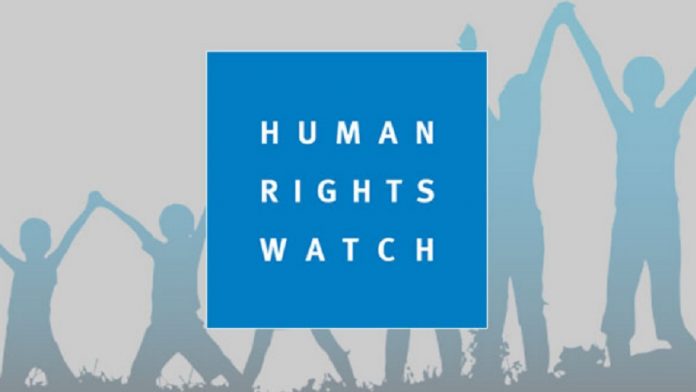Anti-Death Penalty Group Condemns Sentence, Seeks Action on Prison Conditions
(New York, January 18, 2022) – Human Rights Watch on January 18, 2022 joined other organizations in condemning Sri Lanka’s ongoing use of the death penalty after a prison official was sentenced to death on January 12. The groups said that the conviction appeared to be an attempt to avoid addressing the events and dire prison conditions that led to the 2012 incident in which 27 prisoners were killed and about 50 injured at Welikada Prison in Colombo.
The following is their statement:
STATEMENT ON SENTENCING OF SRI LANKAN PRISON SUPERINTENDENT TO THE DEATH PENALTY
On 12 January 2022, the Colombo High Court Special Trial-at-Bar sentenced former Welikada Magazine Prison Superintendent Emil Ranjan Lamahewage to death. Mr. Lamahewage was sentenced in relation to the 2012 Welikada Prison incident in which 27 prisoners were killed and approximately 50 were injured. In 2015 a Committee of Inquiry recommended charging a number of senior officials. Ultimately, only two prison officials were charged and only Mr. Lamahewage was convicted.
The undersigned strongly condemn the ongoing use of the death penalty in Sri Lanka. Whilst Sri Lanka has observed a de facto moratorium on executions since 1976, 1,284 people remained on death row as of September 2020. Despite the long-standing moratorium, the courts continue to impose the death sentence in relation to 22 capital offences.
Prison conditions for prisoners on death row in Sri Lanka are particularly harsh; the 2020 Prison Study by the Human Rights Commission of Sri Lanka describes the living conditions as “appalling and poor”, detailing testimony of those living on death row in conditions with severe overcrowding, poor sanitation, very limited access to health care, and being locked in cells for 23 hours a day. These conditions contravene the United Nations’ Standard Minimum Rules for the Treatment of Prisoners (the Nelson Mandela Rules).
Whilst on the surface, the conviction and sentencing of Mr. Lamahewage appears to be holding one prison official to account, scapegoating by sentencing one individual to death does nothing to address the very real concerns regarding the events that led to the 2012 Welikada Prison incident. Holding those responsible to account is an important step towards justice for victims and survivors of the Welikada Prison incident. That said, the imposition of the death penalty does not achieve this and is never an appropriate way to administer justice.
Using the death penalty, a form of state-sanctioned killing, as a punishment for someone convicted of state-enabled killing, highlights the absurdity of the state being empowered to take the lives of individuals. Activists within Sri Lanka have highlighted the need for urgent, fundamental reform of the criminal justice system with a focus on rehabilitation and reintegration to meaningfully address the severe overcrowding and poor prison conditions.
The signatories call for the Government of Sri Lanka to formalise its de facto moratorium and abolish the death penalty. In the interim, all options should be explored for those sentenced to death, including individualized resentencing, taking into consideration each incarcerated person’s mitigating circumstances, the weight of the evidence presented at trial, and the lengthy sentences of imprisonment many have already served, in very difficult conditions.
Consideration should be given to early release options including commutation of sentences, based on the circumstances of each case, including injustices they may have experienced due to structural and systemic factors. Additionally, the issues outlined in relation to the current conditions on death row must be urgently remedied with adequate resourcing and facilities.
Signed:
Anti-Death Penalty Asia Network (ADPAN)
Capital Punishment Justice Project
FIDH (International Federation for Human Rights)
Eleos Justice, Monash University
Human Rights Watch
